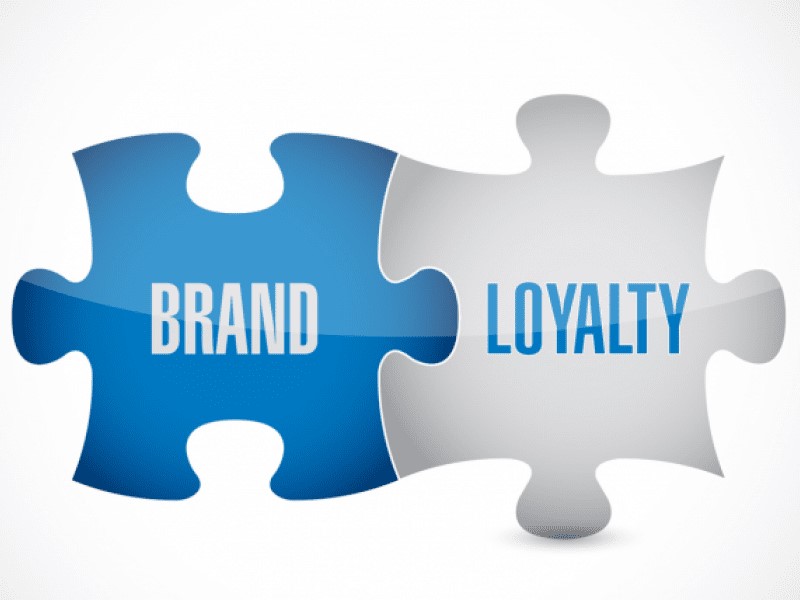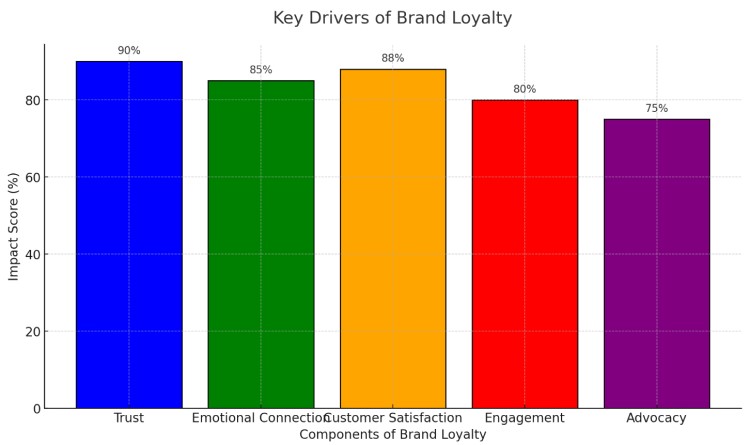
Loyalty goes beyond transactions—it’s about relationships. When customers feel valued, they stick with your brand, even when faced with other choices. Understanding what drives loyalty and how to nurture it helps you stand out in a competitive market.
This guide explores effective strategies for creating meaningful customer relationships. By focusing on trust, value, and consistent engagement, you can build loyalty that lasts.
Understanding Brand Loyalty: Why It Matters
Building brand loyalty is essential for sustaining customer retention and driving business growth. When customers consistently choose your products or services over competitors, it indicates a strong preference that can lead to repeat purchases and positive word-of-mouth referrals. This loyalty not only stabilizes revenue streams but also reduces marketing costs associated with acquiring new customers.
Statistics highlight the significance of cultivating loyal customers. For instance, a 5% increase in customer retention can boost profits by 25% to 95%. Additionally, loyal customers are 60% to 70% more likely to make repeat purchases compared to new customers, who have a 5% to 20% chance of buying. These figures underscore the financial benefits of focusing on customer loyalty.
Moreover, loyal customers often act as brand advocates, sharing their positive experiences with others. This organic promotion can enhance your brand’s reputation and attract new customers. By prioritizing customer satisfaction and consistently delivering value, you can foster loyalty that contributes to long-term success.
The Psychology Behind Brand Loyalty
Building brand loyalty often starts with understanding why customers connect with certain brands. People gravitate toward brands they trust. Trust develops through reliable service, quality products, and ethical business practices. When customers know what to expect, they feel secure in choosing your brand repeatedly.
Emotional connection also plays a significant role in fostering loyalty. Customers often stay loyal to brands that resonate with their values or create positive feelings. For example, they may support a company that aligns with their environmental beliefs. Consistently meeting emotional needs, like feeling appreciated or valued, strengthens this connection.
Consistent value delivery further cements loyalty. Customers remain loyal when your brand continuously provides solutions that meet their expectations. Whether it’s product quality or exceptional service, consistency reassures them. This reliability builds a lasting bond, encouraging them to keep coming back.
By understanding these psychological factors, you can focus on building brand loyalty that resonates with your customers. Strong trust, emotional ties, and consistent value ensure your brand stays top of mind.
Strategies for Building Strong Customer Relationships
Building strong customer relationships requires consistent effort and effective strategies. Personalized communication is a key way to connect with your audience. When you tailor messages to individual preferences, customers feel valued. This approach can include using their names in emails or offering recommendations based on past purchases.
Proactive customer support is another strategy that strengthens relationships. By addressing issues before they escalate, you show customers that you care. For example, sending reminders about service updates or checking in after a purchase demonstrates attentiveness. This not only resolves problems faster but also builds trust.
Feedback loops also play a major role in relationship building. Inviting customers to share their opinions shows that you value their input. Acting on feedback enhances your products or services while demonstrating your commitment to improvement. Many successful brands excel in this area by regularly engaging with customers through surveys or social media.
These strategies contribute to building brand loyalty over time. Companies like Amazon, known for their responsive service and personalized recommendations, are examples of success. By focusing on communication, support, and feedback, you create relationships that keep customers returning.
The Role of Consistent Branding and Quality
Consistent branding and quality are essential to building brand loyalty. When customers see a cohesive identity across your products and communications, they feel confident. A strong and unified brand image signals professionalism and reliability. It reassures customers that they can trust your business to meet their expectations every time.
Delivering quality products and services also plays a key role in fostering loyalty. Customers return to brands that consistently provide value. They want to know they will receive the same high standard with each interaction. This reliability makes it easier for them to choose your brand over competitors.
Consistency across customer touchpoints strengthens trust and reinforces loyalty. From your website to your customer service team, every interaction shapes perceptions of your brand. When these experiences align, customers feel reassured. A seamless experience builds trust and helps you stand out in competitive markets.
Brands that focus on consistency and quality create lasting impressions. By maintaining these standards, you foster trust and loyalty over time. These elements form the foundation for building brand loyalty that drives repeat business and positive referrals.
Leveraging Loyalty Programs and Incentives
Loyalty programs and incentives are powerful tools for building brand loyalty. They reward customers for their continued support, encouraging repeat purchases. Effective loyalty programs often provide points for purchases, exclusive discounts, or free products. These benefits make customers feel appreciated and valued.
Incentives also strengthen customer retention by giving them tangible reasons to return. For example, offering discounts after a certain number of purchases keeps your brand top of mind. Limited-time rewards or exclusive access to new products create excitement and foster engagement. These strategies motivate customers to stay loyal over time.
Membership programs add another layer of value by offering unique perks for a fee or regular engagement. When customers see consistent value from these programs, they remain committed to your brand. By aligning loyalty strategies with customer needs, you encourage deeper connections and increase retention rates.
Loyalty programs and incentives are more than transactional tools; they nurture long-term relationships. By using these strategies effectively, you can focus on building brand loyalty that enhances customer satisfaction and drives growth.
Measuring and Improving Brand Loyalty
Measuring brand loyalty helps you understand how customers feel about your business and identify areas for improvement. Metrics like Net Promoter Score (NPS) and Customer Lifetime Value (CLV) offer valuable insights. NPS measures how likely customers are to recommend your brand, indicating their level of satisfaction and loyalty. CLV highlights the long-term value a customer brings, helping you assess the effectiveness of your loyalty strategies.
Analyzing customer feedback is essential for refining your approach. Encourage customers to share their thoughts through surveys, reviews, or social media. This input reveals what they value most and where you can improve. Look for trends in the feedback to pinpoint common pain points or areas of success. Acting on this data shows customers that their opinions matter.
Adapting your strategies based on customer insights strengthens loyalty and deepens trust. If feedback highlights product issues, address them promptly. If customers praise a specific feature, consider enhancing it further. By listening and responding, you show your commitment to meeting their needs.
Building brand loyalty requires regular evaluation and adjustments. Tracking metrics and also acting on feedback creates a cycle of continuous improvement. These efforts keep your customers engaged and encourage long-term loyalty.
Conclusion
Building brand loyalty is an ongoing process that requires consistency, effort, and customer-focused strategies. By understanding what drives loyalty, you can create meaningful connections with your audience. Prioritizing trust, emotional connections, and also consistent value builds strong relationships over time.
Each touchpoint you manage plays a role in how customers perceive your brand. By focusing on quality and engaging with feedback, you demonstrate a commitment to their needs. These efforts not only retain current customers but also attract new ones through positive word of mouth.
Measuring loyalty through metrics as well as adapting based on customer insights keeps your strategy effective. By staying responsive and proactive, you can address challenges while reinforcing your brand’s strengths. Building brand loyalty creates a foundation for long-term growth and customer satisfaction.



